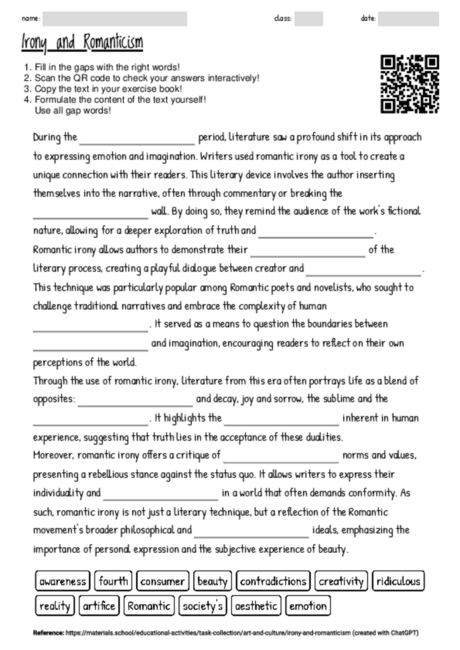Irony and Romanticism
Cloze texts offer a versatile tool for engaging students with literary concepts, fostering both comprehension and critical thinking. By strategically omitting key terms, this approach encourages learners to actively engage with the text, filling in the blanks based on context clues and their understanding of the topic. The use of romantic irony in the context of Romanticism serves as an excellent subject for such exercises, as it encompasses complex literary techniques, historical context, and philosophical underpinnings of the era. Students are prompted to consider not just the definitions of terms but their significance within the broader narrative of Romantic literature. This method stimulates deeper processing of information, aiding in the retention and application of knowledge. Moreover, it introduces students to the notion of literary devices as tools for deeper expression and critique, rather than mere stylistic choices. This specific cloze text navigates the dualities embraced by Romantic irony—such as beauty and decay, joy and sorrow—encouraging learners to reflect on these themes in both the literature of the period and in their interpretations of contemporary works. By integrating awareness of the literary process and the play between reality and imagination, the cloze text supports the development of analytical skills, fostering a more nuanced appreciation of literary texts and their thematic complexities.

